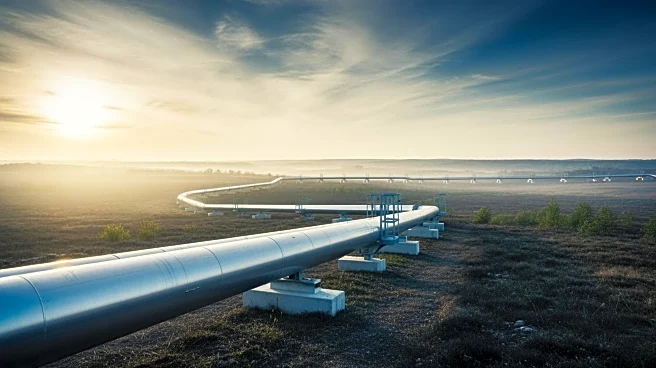What's Happening?
Chevron's stock has been relatively stable despite fluctuations in oil prices. The company recently agreed to sell its Denver-Julesburg Basin pipeline assets for over $2 billion and completed the acquisition
of Hess, boosting its reserves. However, Chevron's earnings have been impacted by weaker oil prices and merger costs. Analysts have mixed views on Chevron's future, with some maintaining a bullish outlook while others express caution due to the volatile oil market.
Why It's Important?
Chevron's strategic moves, including asset sales and acquisitions, are crucial for its long-term growth and financial stability. The company's ability to navigate the challenges of fluctuating oil prices and integrate new assets will be key to maintaining its competitive position. The broader oil market dynamics, including OPEC+ production levels and global demand trends, will also significantly impact Chevron's performance and the energy sector as a whole.
What's Next?
Chevron's upcoming earnings report and Investor Day will provide further insights into its financial health and strategic direction. The company's focus on cost-cutting and divesting non-core assets is expected to continue. Market participants will be watching for any updates on Chevron's production targets and capital spending plans, as well as potential impacts from geopolitical developments and regulatory changes in the energy sector.
Beyond the Headlines
The energy transition and increasing focus on sustainability present both challenges and opportunities for Chevron. The company's investments in low-carbon projects and exploration of new resources will be critical in adapting to the evolving energy landscape. Additionally, Chevron's efforts to maintain shareholder returns through dividends and buybacks will be closely scrutinized by investors seeking stable income in a volatile market.









